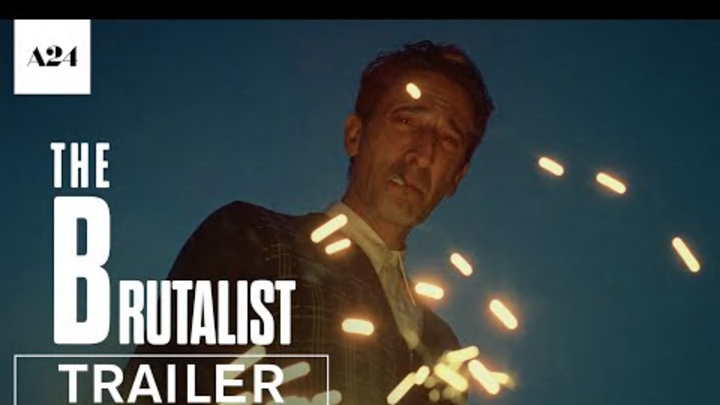This is the time of year when we see sweeping epics that capture a piece of America. That’s certainly the case with The Brutalist, a new film from writer/director Brady Corbett and his partner Mona Fastvold that spans decades in American following World War II. The film is epic in scope and lengthy in run time as it examines the quest for the American Dream.
We’ve seen many films over the years set during World War II, but this is the rare film that looks at life following the war. Specifically, it looks at a family of European survivors who are trying to rebuild their lives, and the struggles they face in achieving that goal. The film has been widely lauded and received many nominations, but it’s hardly an easy watch.

The film follows Laszlo Toth (Adrien Brody). We meet him in 1947 as his boat arrives from Europe to Ellis Island in New York City. He’s survived the war—where he was persecuted for his Jewish faith and separated from his family. Believing them gone, he heads to America to start over.
In Pennsylvania, he reunites with his American cousin, Attila (Alessandro Nivola), who runs a furniture store, has married an American woman, and moved away from his Jewish roots. He gives Laszlo a place to stay, a job, and a reason for hope—letting him know his wife, Erzsebet (Felicity Jones), and niece, Zsofia (Raffey Cassidy), have survived. But they’re stuck in Europe, and Laszlo begins the difficult work of bringing them to America.
Years later, he continues to toil in a menial construction job. But prior to the war, Laszlo was a successful architect of some renowned. He’s found by a wealthy businessman, Harrison Lee Van Buren (Guy Pearce), who sees his potential. Van Buren invites Laszlo to stay at his estate and work on an epic project he hopes will serve as his legacy. He also promises support and resources to reunite Laszlo with his family.
But is the offer salvation and the achievement of the American Dream, or is it a trap that will end up dooming Laszlo and his future?
Much has been made of this film for two reasons. First, the epic scope and the production used to bring this story to life. Second is the run time, which exceeds three and a half hours and includes an intermission. Both things are inescapable when it comes to your appreciation of the film.
From a craft standpoint, what Corbett has achieved is masterful. I was taken with the use of production design, lighting, and cinematography. Even the credit sequences feel unique and engaging. He truly builds this world in time and populates it. And there are some solid performances, with Brody, Pearce, and Jones, among others, all committing to the story and doing fine work.
But it is long. And with a story this dark and severe at times, I couldn’t help but feel that length. This feels more like watching an epic limited series at times than screening a film, and that will likely be a turnoff for some viewers. So, too, will be the narrative itself, which is quite dark. Brutalist feels like an apt title once you get to the end.
For me, this film was a mixed bag. I was in awe of the craft at times, but I was not taken with the narrative. For those that feel more warmly toward the arc of this story, this will feel like something of a great cinematic achievement. I appreciated the work and the craft, but ultimately it fell short of my hopes and expectations.
The Brutalist opens in limited release on Friday, December 20.
